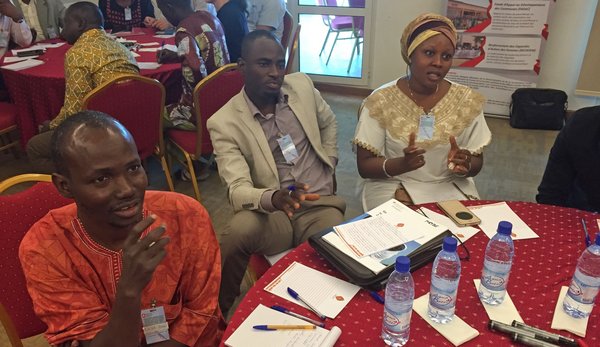 Download this article in magazine layout
Download this article in magazine layout
- Share this article
- Subscribe to our newsletter
Tools for risk assessment
There are several tools to integrate climate, environment and disaster risk reduction (DRR) aspects into development co-operation to safeguard development achievements. One such tool is the Climate, Environment and Disaster Risk Reduction Integration Guidance – CEDRIG. It helps development and humanitarian actors to reflect whether existing and planned strategies, programmes and projects are at risk from climate change, environmental degradation and natural hazards, as well as whether these interventions could further exacerbate these challenges.
The guidance is composed of three modules: CEDRIG Light will help you to decide whether a detailed risk and impact assessment must be conducted or not. It is proposed to be conducted individually or by involving only a few relevant stakeholders for maximum two hours. In case of a ‘yes’, CEDRIG Strategic will help you to analyse strategies and programmes, while CEDRIG Operational will be applied for projects. Both are proposed to be conducted in a participatory manner by organising a workshop with all relevant stakeholders. Its duration can vary from 1.5 to 3 days depending upon the scope, interest and availability of the participants and whether a (recommended) field visit is feasible. The end result of the analysis will include concrete identified measures to improve the strategy, programme or project along with respective actions and indicators to monitor their implementation.
CEDRIG offers the possibility to invite the workshop participants (and others) to access each application and thus to create a team. It further allows storing documents including pictures. An offline version of CEDRIG is available that allows to use CEDRIG while not being connected to the Internet. The content can then be easily transferred into the online version. Currently CEDRIG is available in English, French and Spanish – a Russian version is under development.
More information: www.cedrig.org
The Community-based Risk Screening Tool – Adaptation and Livelihoods (CRiSTAL) was designed to help users design activities that support climate adaptation (i.e. adaptation to climate variability and change) at the community level. It helps them to identify and prioritise climate risks that their projects might address. CRiSTAL seeks to systematically assess the impacts of a project on some of the local determinants of vulnerability and exposure, so that project planners and managers can design activities that foster climate adaptation.
The tool is available in English, French and Spanish.
More information: www.iisd.org/cristaltool





Add a comment
Be the First to Comment